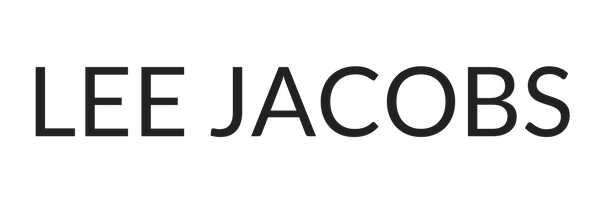In this blog post, Lee Jacobs— investor, Entrepreneur, and Founder of Edelweiss.vc— shares insights on how early tech startup founders can healthily relate to competition. The information will enable early startup founders to focus on building a product customers will love, grow their business fast, and make a positive difference.
As legends go, Scott Cook, founder of Intuit, was approached at an event and asked (and I’m paraphrasing), “Are you worried about other companies that are doing accounting software?” — He responded, “No, I’m not worried about them. When I think about our competition, this is what I think of—” He picks up a pen and paper before continuing, “This is my competition.”
The point was that the existing status quo of how people were doing their accounting— filing things using pen and paper— was his competition, not other accounting startups.
The nature of the best early tech startups is that you focused on creating an emerging market. Because of this, if there is another startup competing with you, then it is likely there are a ton more customers out there that haven’t heard of either of you— you’re both living in obscurity, and you’re both competing to capture as much of the market opportunity you can.
I don’t mean to understate the importance of competition— competition is real, and you need to understand the landscape your startup is operating in. However, focusing too much on the activities of your competitor can derail your efforts— especially in the earliest stages of a company’s life.
The most common reason early-stage startups fail is a lack of execution— providing a great value proposition, getting new customers, improving your product, and growing your customer-base quickly. Startups should focus on delivering great customer experiences, differentiated value propositions, and sustainable growth channels.
In this blog post, I share three things to consider as you are thinking about competition.

1) If Your Competition is Copying You, They are Likely in Trouble.
A founder once approached me stressed out and worried because their competition copied their landing pages verbatim. “I can’t believe they are doing this! I’m really worried. Everytime we do something they do immediately do the same thing!…”
I could relate. When I was growing Colingo, I had the same experience— another company was literally copying our landing page word for word. I remember being really upset. I thought to myself “Oh man; these guys are copying everything we’re doing! What are we going to do? How are we going to be different?”
In retrospect, I find my concern humorous. The reality of building an early stage company is you often don’t really know what you’re doing, you’re trying out a bunch of stuff and running several experiments, you’re learning as you go. The truth is that If we didn’t know what we’re doing and someone else was copying us— they are likely more confused than we were.
If someone is copying you, they need to understand why you do what you do, change what they are doing, and execute and learn faster than you. Your competition probably doesn’t fully understand the why behind your decision-making, why you created the value proposition you did, why you’re pricing your product the way you are, and why you are choosing your distribution channels.
Without understanding the ‘why’ and just copying it, the competition likely doesn’t really have a real feel for what the customers want— they’re just blindly following.

2) Be Transparent with Your Strategy
Many people are afraid about sharing their ideas because they think their idea is precious, but the reality is— ideas are cheap and execution is really expensive. It’s unlikely your idea is truly novel. The reality is— it’s going to change. So, don’t be too guarded about what you’re doing.
I encourage early-stage startups to be pretty open with people about what they’re doing and why they’re doing it— share your strategy. In my view, you end up gaining more by talking to other people about what you’re working on since you get other people’s feedback. If you’re really open to their feedback, you can learn much faster.
When you do this, you can also attract a lot of brilliant people to help you. For example, if I don’t know something, I’ll go and find someone who is smarter in a particular field to help me. I find and collaborate with people who are experts in areas I am not, and ask them for their input. For example, I often find myself talking with investing partner Brian Balfour about the intricacies of growth.
The more you’re open about what you’re doing, the more likely you’re going to get valuable feedback from good people— this is much better than holding onto the idea and not getting feedback about it.
A good metaphor for this is open-source software. Open-source software is publicly released and a broad set of developers can collaborate and improve the code— by making it open to the community, the software improves exponentially.
Startups are learning machines— they should be learning as fast as they can. When you learn fast you can more likely find a move to make things work. I believe it was Paul Graham from Y Combinator who originated this idea that startups are ‘learning machines’ and founders as an extension of their companies should always have a growth-mindset— learning fast, iterating fast, and always leveling up. On my close friends Tracy Lawrence, CEO of Chewse, is an excellent example of this.
However, what if you are still afraid to share your strategy? I recommend playing out the worst-case scenario in your head, then deciding how likely this is. The scenario is as follows:
- Someone hears about what you are doing.
- They decide they want to stop what they are doing and do exactly what are are doing— a big leap (and likely implies they lack conviction in their ideas)!
- They have to understand why you’re doing what you’re doing.
- They actually have to do it— and fast!
Even if all of the above comes true, by the time all of this happens— you will be much further along than they are.

3) Competition Can Matter— Often Only On Sand Hill Road (and South Park)
Fundraising is an essential part of an high growth early-stage startups life— this is one of the areas I help our companies with. Investors evaluating your company often ask about your competition since most investors can only invest in one company going after the same opportunity and want to know which one they should choose.
Additionally, it is likely that an investor has met your competition or knows someone who has invested in your competition. The likelihood is that these investors have seen most (if not all) the companies competing in your space.
The reality is: competition does matter when you’re talking about fundraising because VCs can be myopic, and since their frame of reference is investable companies instead of the actual market—they tend to overstate how much competition matters.
In summary:
- What kills early-stage companies is ineffective execution— focus on selling your product to new customers, serving your customers in the best way, and recruiting the best people.
- Be open with what you are doing and learn fast— share your strategy with others, listen to their feedback, and get help from people who are smarter than you.
- Competition does matter but don’t overcompensate for them!
I hope you enjoyed this post! More to come…
Lee Jacobs
@LeeJacobs
Crunchbase

